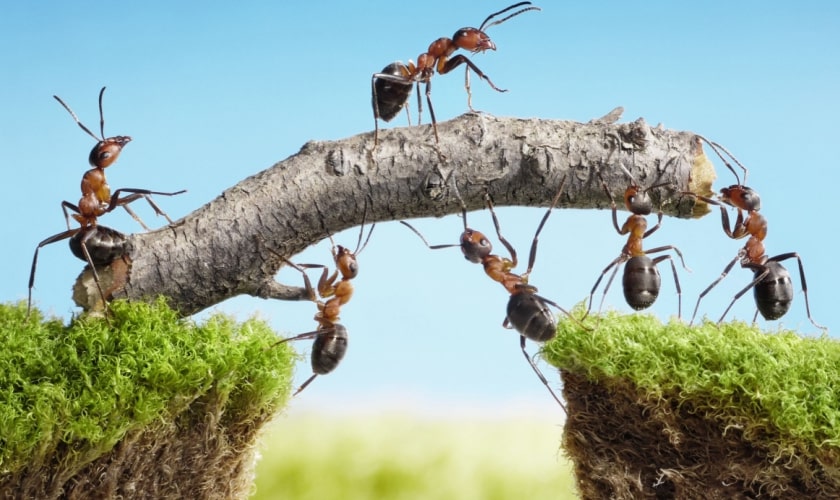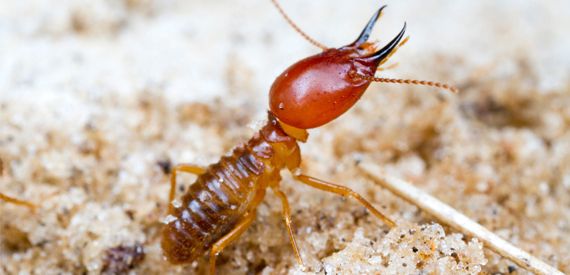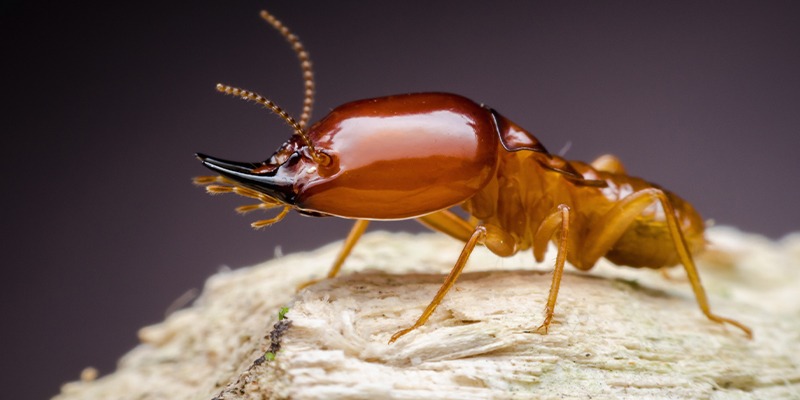Cost Effective Ant Control Solutions: Maintain Your Space Ant-Free
Cost Effective Ant Control Solutions: Maintain Your Space Ant-Free
Blog Article
Ecological Impact of Insect Control: Harmonizing Performance With Sustainability
The ecological effect of pest control is an essential problem that requires a fragile balance in between achieving performance in making sure and taking care of pests sustainability of our communities. From the use of damaging chemicals that permeate into our soil and water to the unexpected effects on non-target types, the effects of traditional parasite control methods are significant.
Dangerous Chemicals in Insect Control
The usage of harmful chemicals in bug control poses substantial environmental and wellness risks that necessitate cautious consideration and mitigation approaches. Herbicides, insecticides, and chemicals are frequently utilized to eradicate bugs, however their widespread application can cause unexpected consequences. These chemicals can pollute soil, water sources, and the air, affecting not only the targeted pests yet likewise helpful pests, wild animals, and human beings.

To deal with these dangers, integrated insect administration (IPM) methods are being advertised as a more lasting choice. IPM entails a combination of techniques such as organic control, habitat manipulation, and the targeted use of pesticides as a last hotel (ant control forest nc). By adopting an all natural method to pest control, we can lessen the ecological and wellness influences related to harmful chemicals while successfully handling pest populations
Influence on Non-Target Variety
Thinking about the unintentional repercussions of pest control techniques, the effect on non-target types is an essential element that requires complete assessment. While pest control procedures intend to target certain bugs, other microorganisms in the ecological community might be accidentally influenced. Non-target varieties, including valuable bugs, birds, mammals, and also plants, can suffer indirect or direct injury from chemical applications or organic control techniques.
Pesticides can have sub-lethal or dangerous effects on non-target species. For example, insecticides designed to combat a specific insect pest might damage pollinators like bees or all-natural killers such as ladybugs. Furthermore, chemical deposits can gather in the setting, affecting non-target microorganisms with time. Likewise, organic control agents, otherwise species-specific, can pose threats to unintentional targets, disrupting the ecological balance.
To alleviate the influence on non-target types, integrated pest management (IPM) approaches that emphasize an all natural method to pest control are recommended. These approaches prioritize making use of environmentally friendly practices, lessening injury to valuable microorganisms while successfully handling pest populaces. Conducting comprehensive threat evaluations and keeping track of the end results of bug control initiatives are necessary actions in securing non-target varieties and promoting general ecosystem health.
Dirt and Water Contamination
Unintentional ecological consequences of insect control methods prolong beyond impacting non-target species, with considerable effects for dirt and water contamination. Pesticides, herbicides, and chemical plant foods utilized in parasite control can leach right into the dirt and pollute groundwater, positioning a threat to both terrestrial and aquatic communities. Dirt contamination can interrupt the equilibrium of microbes crucial for vitamins and mineral cycling and plant growth, resulting in reduced dirt fertility and efficiency. These chemicals can continue in the atmosphere for extensive periods, building up in the dirt and possibly getting in the food chain.
Water contamination is one more vital issue related to pest control methods. Drainage from agricultural fields treated with pesticides can carry these chemicals right into nearby water bodies, affecting water organisms and water high quality. Contaminants in water resources can have significant effects, impacting not just marine life but also human health and wellness via the consumption of infected water or aquatic microorganisms. To mitigate dirt and water contamination from bug control activities, integrated bug administration methods that prioritize sustainability and reduce chemical inputs are critical.
Air Contamination From Chemical Usage
Direct exposure to airborne pesticides throughout agricultural applications positions a substantial worry for air pollution control steps. In addition, chemical drift, where pesticides are carried by the wind to unplanned locations, can lead to the contamination of nearby environments and water bodies.

Strategies for Lasting Insect Control
In the realm of agricultural practices, applying sustainable bug control strategies is extremely important for keeping ecological balance and securing plant yields. Sustainable bug control highlights using eco pleasant approaches to manage bug populaces successfully while minimizing harm to non-target organisms and communities. Integrated Insect Management (IPM) is a widely embraced approach that incorporates organic, social, physical, and chemical control approaches to accomplish lasting parasite management options.
Crop rotation and diversification are likewise reliable techniques to interfere with pest life cycles and produce informative post less beneficial conditions for bugs to flourish. Ultimately, by incorporating these lasting pest control techniques, farmers can achieve a balance in between pest management effectiveness and ecological stewardship.
Conclusion
In verdict, the ecological influence of pest control methods need to be very carefully thought about to balance efficiency with sustainability. Damaging chemicals utilized in pest control can bring about dirt and water contamination, air contamination, and harm non-target varieties - termite control. It is crucial to apply sustainable parasite control strategies to reduce these unfavorable impacts on the atmosphere and promote a healthier ecosystem for future generations
By embracing a holistic strategy to pest control, we can decrease the ecological and health and wellness effects linked with dangerous chemicals while effectively managing pest populaces.

To mitigate the air contamination triggered by chemical usage, it is important to take on incorporated parasite management strategies that prioritize the use of non-chemical insect control methods, such as plant turning, all-natural killers, and resistant plant varieties. Lasting insect control highlights the use of eco pleasant techniques to manage bug populaces efficiently while decreasing injury to non-target microorganisms and ecological communities. Integrated Parasite Administration (IPM) is a commonly taken on technique that combines organic, social, physical, and chemical control methods to attain lasting pest monitoring solutions.
Report this page